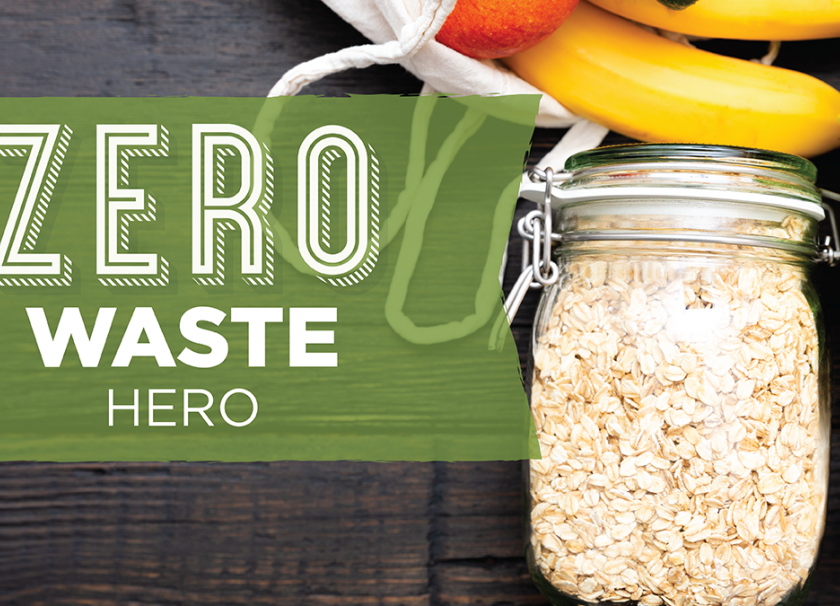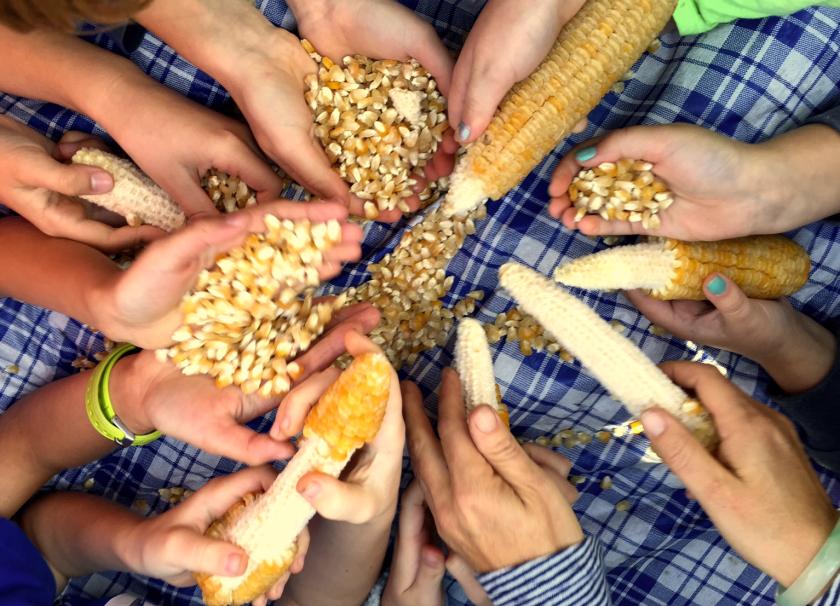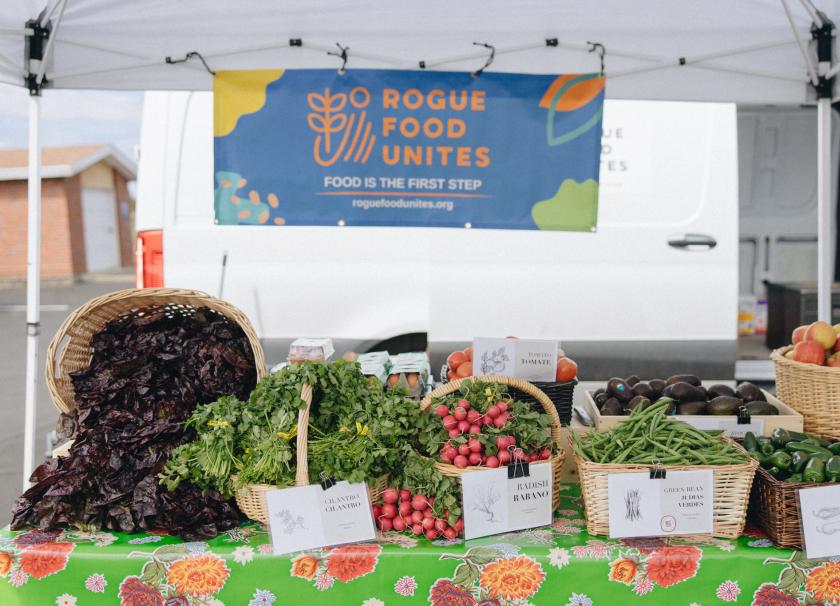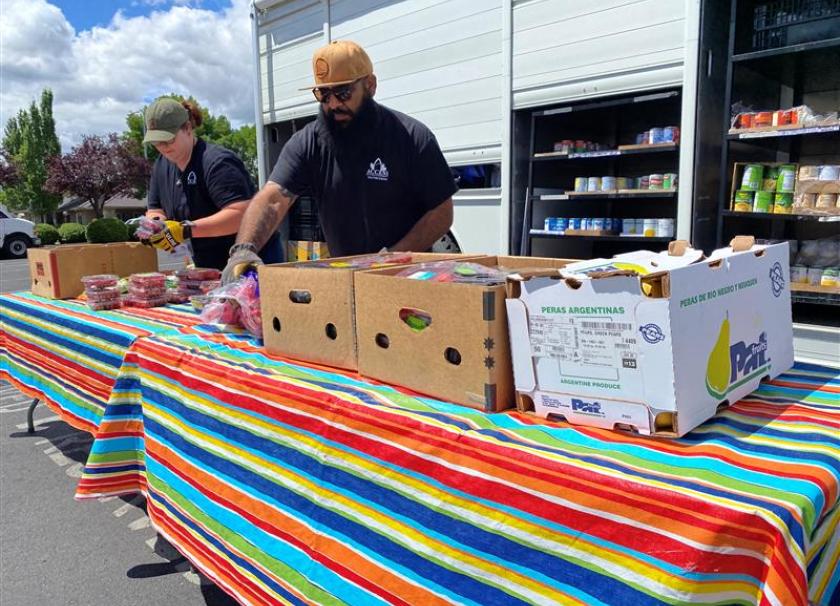
Tips for a Sustainable Kitchen
By Mahlea Rasmussen, Education Coordinator
Outside of work I spend a lot of time in the kitchen. I find it a soothing space to create nourishing meals and lasting memories. I find it essential to be as eco-friendly as possible and a few changes can transform your kitchen into a sustainable center of your home.
The choices begin with shopping for your food. It is important to stay organized so you don’t end up over-shopping or purchasing items you already have. This can lead to food waste - the USDA found that Americans on average each waste a pound of food per day. To avoid this, create a list on a chalkboard or white board and take a photo, so you know just what to purchase.
Don’t shop when your hungry. Although all of us have been there and heard this before, we are much more likely to purchase unnecessary items when our tummies are doing the talking.
Leave your reusable tote bags in the car, so you don’t leave them at home. After unloading your goods, run out to the car one more time and throw your bags in the back seat. That way you won't be caught without them next time you hit the market. Some estimates put the average 'lifespan' of a plastic bag at just 12 minutes.
Shop in the bulk and produce departments to avoid packaging and bring your own containers. The beautiful thing about bulk is that it goes far beyond food items: shampoo, dishwashing detergent, pet food and more are available. Because you can bring your own containers to fill, you're skipping the single-use packaging that many products on the shelf come in.
When shopping for produce, I choose a bag made from recycled plastic bottles available for $0.50 in our produce department. For dry goods, a muslin cloth bag is also available for the same price. For flours and liquids, I bring my own glass jars and bottles.
Shopping for herbs and spices with your own containers is especially advantages as you can save as much as 95% on the goods you buy. Remember: every time you purchase an item in a container, part of the cost is paying for the container itself.
At home some other ways to make your kitchen more sustainable is by growing your own herbs and making your own products. This doesn’t have to be overly time consuming. Herbs, rosemary, oregano and thyme are easy to grow and require minimal time.
Having a stock container in your freezer can significantly reduce your waste and save you money. Most vegetable scraps can be used such as carrot ends, celery and onion. After boiling the stock vegetables you can compost them as long as there is no meat product or oil used.
Replace soft drinks with infused water you make at home. Fill a pitcher with refreshing citrus, mint or cucumber. Not only is this good for your budget, but it's good for your waistline by reducing unnecessary sugar intake.
Another item found commonly in kitchens and easily eliminated is paper towels: it’s easy to sub in some worn out, clean t-shirts and cloth napkins.
And finally, when you're serving dinner, create smaller plates. Those who are hungry can always go back for more, but you will end up throwing out less uneaten food.
The benefits of a zero waste kitchen go beyond the trash compactor. You will find yourself saving money and eating clean. “The zero waste lifestyle is not about complicating your life; it’s about simplifying.” - Bea Johnson.
More Co-op News

May Change for Good: Our Family Farms
This month, the Ashland Food Co-op is proud to annouce our Change for Good partner, Our Family Farms, an organization dedicated to safeguarding our agricultural heritage and promoting regenerative organic practices.

A Closer Look at Cinco de Mayo
Cinco de Mayo has become synonymous with festivities and delicious Mexican cuisine (and who doesn’t love both of those things?). At the Ashland Food Co-op, it's important for us to approach this celebration mindfully and with a cultural understanding.



March Change for Good: KS Wild
As we step into March, we are thrilled to introduce our Change for Good partner – KS Wild, an organization dedicated to preserving the breathtaking landscapes of Southern Oregon. At the heart of our community lies a shared commitment to sustainability and environmental stewardship, making KS Wild the perfect ally in our ongoing quest for positive change.
What is KS Wild?

February Change for Good Partner: Rogue Climate
As we navigate the challenges posed by climate change, it becomes increasingly vital to support organizations dedicated to creating positive environmental impacts. This February, Ashland Food Co-op proudly introduces Rogue Climate as its Change for Good partner. Join us in supporting their mission to empower Southern Oregon communities most affected by climate change.

January Change for Good: AHS Culinary Arts Program
Hey Co-op community!
As we step into the new year, the Ashland Food Co-op is excited to continue our Change for Good program, and for January 2024, we're shining a spotlight on a program that's close to our hearts (and our stomachs) - the Ashland High School Culinary Arts Program.

No Hassle Holiday - Thanksgiving Dinner from the Co-op!
This Thanksgiving, let us take the hassle out of your holiday feast preparation!

November Change for Good: Rogue Food Unites
Say hello to our November Change for Good partner - Rogue Food Unites!
Rogue Food Unites (RFU) uses food to heal individuals and communities during times of crisis. RFU was formed in 2020 out of the dual disasters of the Almeda and Obenchain fires and the impacts of COVID-19 on local communities. Within a short time, RFU began contracting with the State of Oregon to supply hot meals, food boxes, and solidarity cards in Deschutes, Douglas, Klamath, Josephine, and Jackson Counties.

Meet Nick Hardee, AFC's new GM!
The Co-op Board of Directors and staff are thrilled to welcome Nick Hardee as the new General Manager of the Ashland Food Co-op! We asked Nick to share a little bit about himself so we'll get right to it!

October Change for Good: Center for Non-Profit Legal Services
This October, the Ashland Food Co-op is proud to partner with the Center for Non-Profit Legal Services (CNPLS) for our Change for Good program. All month long, shoppers can round up their purchases to support CNPLS and their mission to provide access to justice.
CNPLS is a non-profit legal aid firm serving low-income and vulnerable community members in Ashland and surrounding areas. Their team of dedicated lawyers and volunteers work to ensure everyone has access to legal help, regardless of their ability to pay.

It's Co-op Month!
OK, you've got us, every month is Co-op Month here at AFC! But every October since 1964, cooperatives of all kinds have celebrated the cooperative difference. Here at the Ashland Food Co-op, we're excited to recognize the history, benefits, and principles behind our own co-op.

September Change for Good: AFC Community Fund
As we enter the beautiful month of September here in Southern Oregon, we're excited to share that our Change for Good partner this month is our very own Community Fund. As many of you know, the Community Fund allows us to support amazing local projects and organizations doing great work right here in Southern Oregon.

August Change for Good - Partnering with ACCESS to Make a Difference!
We are honored to partner with ACCESS this August - a fantastic organization that has been serving our community for over four decades. ACCESS, which stands for "A Community in Action, Connecting, Empowering, and Strengthening Self-Sufficiency," is dedicated to addressing hunger, homelessness, and poverty in Southern Oregon.

Empowering Our Community: AFC's Community Grants Now Accepting Applications
As part of our ongoing commitment to supporting the local community, AFC is thrilled to announce the that we are accepting applications for our Community Grants program.
Ashland Food Co-op's Community Grants program is designed to foster meaningful change in the Southern Oregon region. Through these grants, we seek to support projects that align with our mission of promoting local and sustainable food systems, addressing food insecurity, and promoting community engagement.
